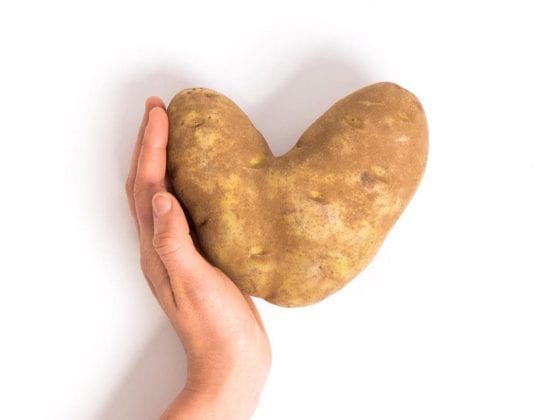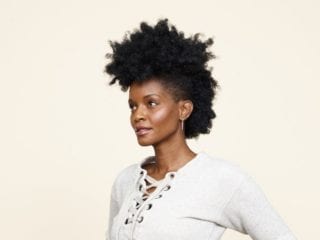It’s early on a slow Wednesday morning, and the inevitable happens. Even though I’ve only been up for a few minutes, my thumb unconsciously makes its way to the Instagram icon on my phone, opens the app and starts tapping on the stories bar.
One after another, the morning routines of my IRL friends, digital acquaintances and the “influencers” I follow take over my iPhone screen. Frothy, adaptogen-filled hot drinks pop up, one after another. A bright green matcha here, a caramel-looking bulletproof coffee there. Every once in a while, a sunny turmeric latte will even make an appearance.
It seems like everyone has their own unique recipe — a touch of grass fed ghee for friend number one, a pinch of ashwagandha for friend number two — but the MVP ingredient in all of these creamy, dreamy healthy drinks? Collagen.
While it just started showing up in the feeds of Instagram influencers in the past 18 months, ingestible collagen has been a favorite of the wellness set for a few years. Biohacker Dave Asprey, of Bulletproof Coffee fame, began waxing poetic about the supplement on his podcast over five years ago because of its joint health benefits. Asprey loved supplementing with collagen so much, he even made his own version of the product that he recommends users mix into his classic BP coffee recipe.
And hard core athletes — runners, especially — have relied on collagen and gelatin supplements to help with joint pain and inflammation for years. Walk into any specialty running store and you’ll find shelves filled with chondroitin and collagen products promising to ease achy knees and improve muscle recovery time.
… lots of users flock to collagen in the hope that it’ll reduce the effects, or even reverse the signs, of aging.
But lately, ingestible collagen is on everyone’s radar, not just the fringey wellness groups. Beauty supplement brands fold collagen into their formulas alongside other ingredients that anecdotally encourage healthy skin, like omega-3 fatty acids or antioxidants. And lots of users flock to collagen in the hope that it’ll reduce the effects, or even reverse the signs, of aging.
After all, it’s common knowledge that collagen is a compound that contributes to the look of healthy, youthful skin. Collagen is actually a protein that our bodies produce to that give our skin and joints structure. As we get older, our bodies produce less collagen. Levels start to decline as early as our 20s and 30s, and then wrinkles begin to form as our skin loses its firmness and joints start to stiffen. It’s a natural part of the aging process, but things like sun exposure and smoking can quicken collagen depletion.
So naturally, you’d think that supplementing with dietary collagen could help with the signs of aging, right?
Not exactly.
While there’s pretty solid scientific evidence that collagen supplementation can help decrease pain levels in those with joint inflammation, there isn’t much research on the effects of dietary collagen on skin, hair and nails. Sure, it makes sense in theory that eating collagen would boost the body’s own collagen production, but until science proves that there’s a real benefit, we can’t say that for sure. Anecdotally, many people note that they see an improvement in the firmness of their complexions and see faster hair growth when they supplement with collagen regularly.
But just because the science doesn’t quite add up yet doesn’t mean you should totally write collagen off. It offers a decent amount of animal-based protein (about 5 to 10 grams per serving, depending on the formulation) as well as a few amino acids that your body doesn’t naturally produce. And a little extra protein never hurt anyone, right?
Anecdotally, many people note that they see an improvement in the firmness of their complexions and see faster hair growth when they supplement with collagen regularly.
Collagen really shines, though, as an ingredient in smoothies, warm drinks, soups and even baked goods. It’s flavorless and odorless, but acts like a natural thickening agent. When added, it gives cold blended drinks an extra smooth, rich texture that’s closer to ice cream than an ice-based drink. Stir it into hot drinks like coffee or nut milk lattes to add a subtle creaminess without excessive added calories.
By definition, collagen is derived from animal sources, so it’s not for vegans. Stay away if you’re trying to stick to a plant-based diet.
But if you’re not a strict vegan and are looking for a way to get a little extra protein into your diet — and add some frothiness to your favorite drinks — collagen might be your BFF.
What are your thoughts? Have you tried collagen?
Images via Beth Cath














4 comments
Hi there!
I have been adding a scoop of collagen powder to my overnight oats for about 4 months now to help with hair growth. I noticed right away that my body took to it and my hair has been growing so much quicker than usual. I eat a well balanced mostly unprocessed food diet and exercise regularly which I’m sure aids to it! It has been a great experience thus far.
I love my collagen and take the Bulletproof one. I also was told to take Vitamin C for it to work so don’t forget that because I definitely see the results I want now 🙂
Interesting timing of this article. I was diagnosed with osteoarthritis in my right knee late last year. I’ve been researching ways to reduce inflammation and collagen was one of the solutions. Some studies have suggested that collagen could possibly even rebuild cartilage – which seems crazy to me – but has a 29 year old with bad knees, it might be worth a shot as a opposed to wearing a brace for the rest of my life.
As always, with any pseudoscience advice, use caution, do your research, consult your doctor. We don’t all have the tenacity of Dave Asprey and could figure out our own health problems. And when all else fails, pray.
i don’t believe for a second that it beneficial., your best bet is to eat whole unprocessed food.
Diet trends come and go, there is always some company trying to figure out what to do with animal remnants. Whether it is “gelatine”,,or “bone” broth.
just my 2cents:)